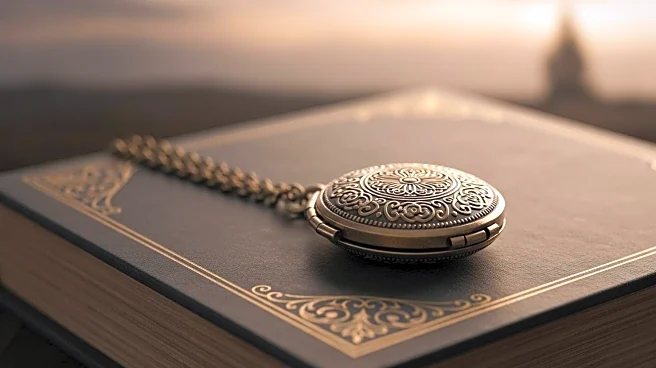What's Happening?
Margot Robbie and Jacob Elordi are set to star in Emerald Fennell's adaptation of 'Wuthering Heights,' based on Emily Brontë's classic novel. The film, produced by LuckyChap and MRC, is scheduled for release on February 13, 2026, by Warner Bros. Robbie plays Catherine Earnshaw, while Elordi portrays Heathcliff, characters whose tumultuous relationship is central to the story. The film marks Fennell's third collaboration with LuckyChap, following her previous works 'Promising Young Woman' and 'Saltburn.' The teaser trailer hints at the intense dynamics between the lead characters, promising a passionate and revenge-driven narrative.
Why It's Important?
The adaptation of 'Wuthering Heights' is significant as it brings a fresh perspective to a timeless literary classic, potentially attracting a new generation of viewers. Emerald Fennell's involvement as director and screenwriter adds credibility, given her previous success with 'Promising Young Woman,' which won an Oscar for Best Original Screenplay. The film's release around Valentine's Day could capitalize on its romantic themes, appealing to audiences seeking dramatic and emotional storytelling. Additionally, the casting of high-profile actors like Margot Robbie and Jacob Elordi is likely to draw significant attention and anticipation.
What's Next?
The film's release is set for February 13, 2026, and as the date approaches, promotional activities are expected to increase, including interviews, press tours, and additional trailers. The film's reception will be closely watched, particularly in terms of how it compares to previous adaptations of 'Wuthering Heights.' Industry stakeholders will be interested in its box office performance and critical reviews, which could influence future adaptations of classic literature. Fans of the novel and the actors involved will likely engage in discussions and analyses of the film's interpretation of the source material.
Beyond the Headlines
This adaptation of 'Wuthering Heights' may spark discussions on the enduring relevance of classic literature in modern cinema. It could also lead to debates on the portrayal of complex relationships and themes of passion and revenge in contemporary storytelling. The film's success might encourage more filmmakers to explore classic novels, potentially leading to a resurgence of literary adaptations in Hollywood. Additionally, the collaboration between Fennell and LuckyChap highlights the growing trend of production companies supporting female directors and screenwriters.








